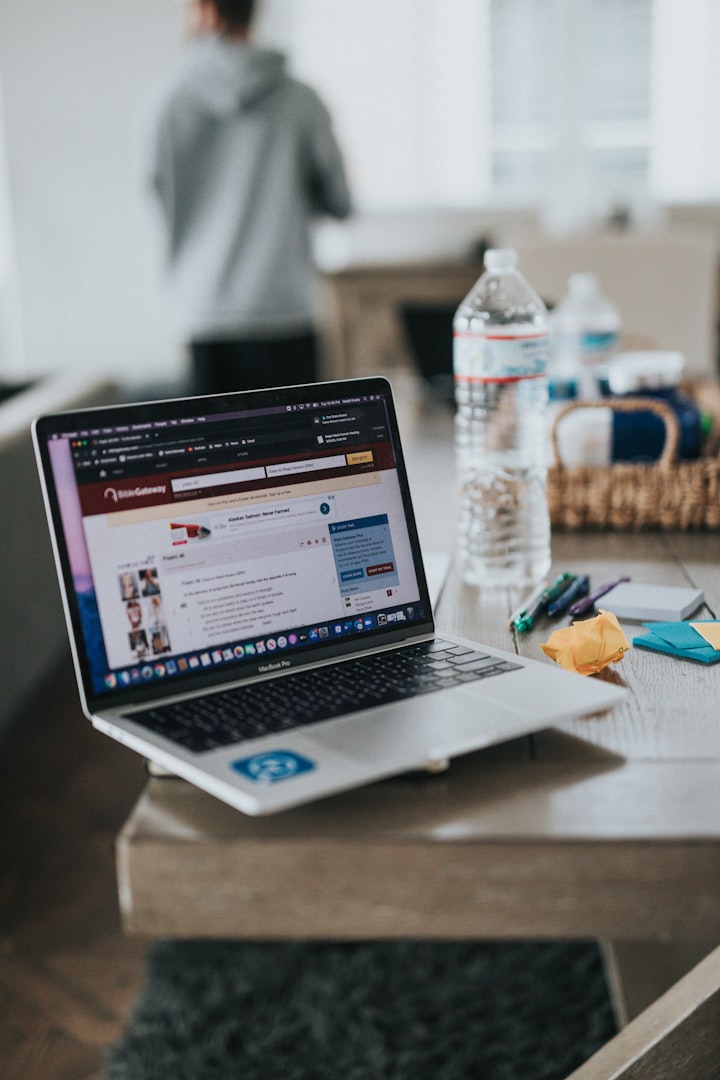Working From Home
The Good, The Bad & The (Really) Ugly

THE STORY
Working first as an elementary school teacher and then as a college professor, I was surrounded by students much of the time. Though fundamentally an introvert, it was fun to explore my extrovert side. The students, especially the little tykes, were a joy to be with and provided plenty of mental stimulus. The rest of the time I indulged my introvert side.
Today, things have changed dramatically. Like many friends and fellow writers, I now work from home, often never meeting associates and colleagues in person. Not a problem for me I thought, since I loved being at home and working independently. A dream come true I thought, fantasizing about oodles of extra time and production. I’d have more quality time with family I thought, and family ties could only become richer.
It hasn’t exactly … AHEM … worked out that way. Let’s just say there’s good, there’s bad and there’s (really) ugly.
The Good
- You can stay in your jammies as long as you want
- You set your own schedule
- You can focus without office distractions
- Your friends trapped in offices are insanely jealous
- There is no more office drama
- There are no more office politics
- You don’t have to make coffee to everyone else’s liking
- You can snack all day
- You save time on personal grooming
- You increase productivity
- You don’t worry about what day it is
- You have more personal freedom
The Bad
- You stay in your jammies for weeks at a time hoping no one rings the doorbell
- Everyone thinks you have no schedule
- You can’t focus due to household distractions
- Your friends trapped in offices are insanely jealous
- Life is boring without a bit of office drama
- Every career feeds on a bit of politics
- You always have to make your own coffee
- You snack all day
- Your self-grooming reaches a new low
- You have longer working hours
- You don’t know what day it is
- You have the illusion of personal freedom
The (Really) Ugly
- You must eventually wash your favorite jammies
- You’re expected to be available all the time
- Laundry, kids, pets, Facebook, Netflix, etc., etc., etc.
- Your friends ask if you’re ever going to get a real job again
- You feel excluded when friends talk incessantly about office drama
- Your friends learn to navigate office politics and advance while you languish
- You realize you make really bad coffee yet you still drink the whole pot yourself
- You cannot rummage through the office fridge for snacks
- Eventually you have to turn the webcam on for meetings
- You’re always at work
- You fail the orientation section of the Mental Status Exam
- You learn that freedom isn’t free
It quickly becomes clear that there are tremendous advantages and disadvantages to working from home. Sometimes things can be downright ugly.
PSYCH PSTUFF’S SUMMARY
Anyone who’s ever taken a psych course knows that Sigmund Freud had a lot to say about how we live our lives. About work, he was very clear, noting its importance in our lives, stating, “Love and work are the cornerstones of our humanness.”
As usual, Freud was on to something … something big. It’s estimated that most of us will spend a third of our adult life “working.” Clearly, anything that takes up that much time and energy will become an integral part of how we see ourselves. By working in a specific field or organization, we come to identify ourselves with that collective group and incorporate the norms and values into our own self-identity. It follows then, if we lose part of that affiliation, we feel a sense of loss of self, an angst, a void.
Today there is a whole sub-field of psychology, pretentiously labeled, Industrial and Organizational Psychology, which focuses on the workplace and its role in our lives. On the business side of things, it is similarly profoundly titled Organizational Behavior. As such, these fields seek to define the process of work and its meaning. Psychologist David McClelland theorized three basic emotions that drive our work related behavior-the achievement motivation, the power motivation, and the affiliation motivation. It seems fairly intuitive how these basic drives play into work in traditional settings. However, ever since technology has enabled us to work around the clock and around the globe negotiating these needs in the new workplace environments, including home, has become more of a challenge.
Like many of the challenges in life, perhaps the answer lies within, rather than in some external solution. Perhaps it is best expressed by Dan Millman in Way of the Peaceful Warrior: A Book That Changes Lives, where he says, “A warrior does not give up what he loves, he finds the love in what he does.”
It’s also important to keep perspective, i.e., to remember that the quest for meaningful and fulfilling work is essentially a first-world problem-a privilege, not a right. For most of history, and in plenty of the world today, the notion that work should provide a sense of purpose and meaning, reflect our values and passions, suit our personalities and preferences while nurtuing our relationships and sense of self, is utterly foreign. In short, work to most of the world has, or still is, about sustenance and survival rather than success and satisfaction.
The quest for meaningful and fulfilling work is essentially a first-world problem-a privilege, not a right.
That said, in our comfortable modern life, for many of us the task of finding fulfilling work is one of the greatest challenges we will face. Roman Krznaric in his 2013 book How to Find Fulfilling Work asks “What is your current work doing to you as a person- to your mind, character and relationships?”
Whether at home or in an office setting, perhaps these are the central questions we should ask ourselves.

About the Creator
Donna L. Roberts, PhD (Psych Pstuff)
Writer, psychologist and university professor researching media psych, generational studies, human and animal rights, and industrial/organizational psychology






Comments
There are no comments for this story
Be the first to respond and start the conversation.